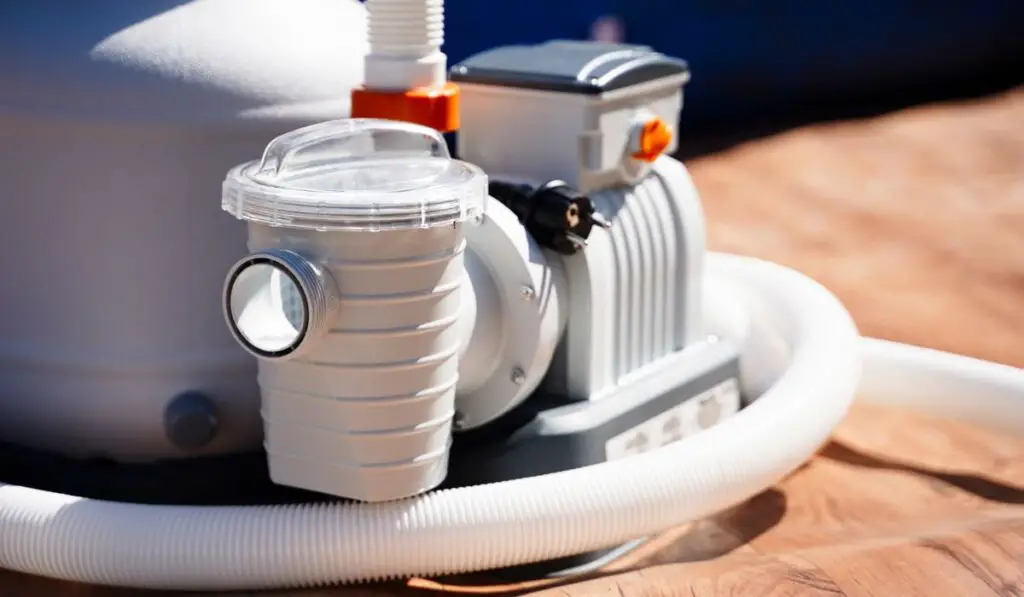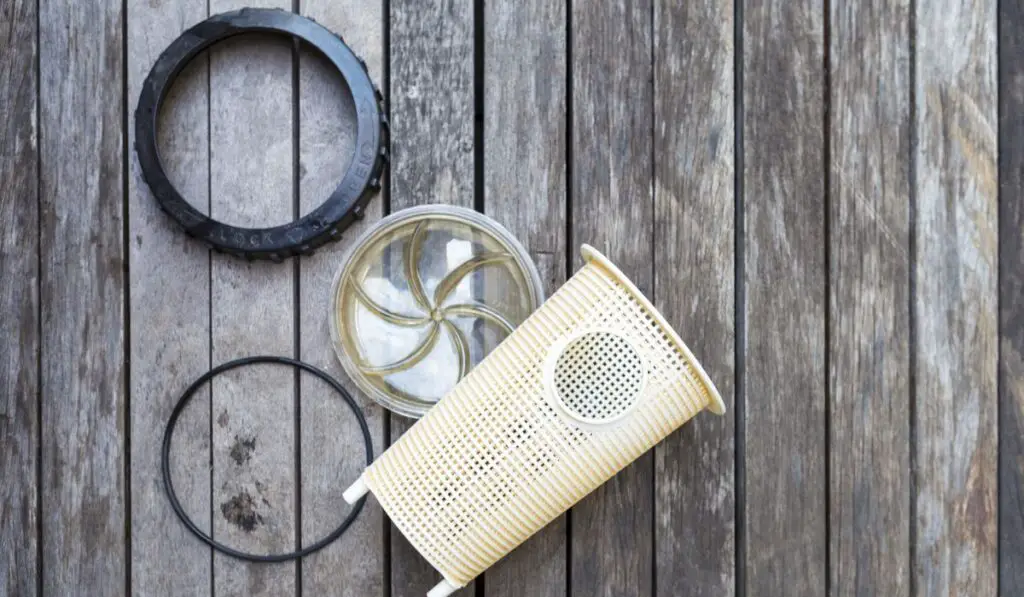There’s no better way to beat the intense summer heat than by taking a dip in your backyard swimming pool. But jumping into a dirty pool is no fun — and it can be dangerous. It’s important to clean and service your pool properly before anyone takes a swim, and one of the most important aspects of pool maintenance is keeping your pump in good working order.
You can maintain a healthy pool pump by performing regular checks, cleaning the pump basket, and ensuring proper water levels. Consider getting your pump serviced annually by a certified technician (try a local pool store). With good maintenance, a run-time of 8-12 years is fair to expect.
A well-maintained pool pump is key to a healthy swimming pool, allowing you and your family to swim in clean, filtered, and refreshing water. Let’s look at how often you should service your pump, which aspects of maintenance and troubleshooting you can do yourself, and when you should call a professional.
How Often Should a Pool Pump Be Serviced?

Make sure you get your pump checked and serviced by a certified pool technician at least once a year to ensure everything is operating as it should.
It’s best to service your pump in the spring, just before peak pool season, so you can provide a safe and fun swim for your friends and family when the summer heat arrives.
Signs Your Pool Pump Needs Attention
Without a properly functioning pump, your pool water won’t be filtered and treated properly, and your pool may turn into a cesspool of germs and algae.
Here are a few signs that indicate your pool pump needs attention:
- Pump spitting water and making bubbles
- Pump motor shuts down abruptly
- Loss of suction
- Leaking pump
- Unusual noises
- Lower or higher than usual water level
- Difficulty in priming the pump or getting the water flow started
What You Can Do Yourself vs. When to Hire a Professional
It’s pretty easy to maintain a healthy pool pump. In fact, there are a few things you can do yourself to make sure your pump keeps running smoothly, such as:
Perform Regular Checks
Make sure you check your pool pump every week for any issues. Since it’s electrically powered, remember to be careful when carrying out your weekly checks, and never turn on the pump if there’s no water inside it.
It’s also advisable to check the reading on the filter pressure gauge to confirm that everything is within the normal working range.
Clean the Pool Pump Basket
Cleaning your pool pump’s basket is an important part of maintenance that can help extend the life of the pump. Make sure you also clean your skimmer baskets twice every week and remove any debris stuck inside them before putting them back in place.
While you’re at it, it’s also a good idea to lubricate the o-rings or pump lid seals to help them work efficiently.
Check the Pool’s Water Level
If your pool pump sucks in air instead of water for too long, all of its internal components will get seriously damaged. However, you can easily prevent any potential damage by keeping your pool’s water level at least halfway up your skimmer box at all times.
When to Hire a Professional
If your pool pump is more than five years old and is making a loud, screeching noise, then it might be time for a replacement. However, if you don’t know your way around a pump or aren’t comfortable with performing the task yourself, then it’s best to call a professional.
Make sure you also hire a professional if there’s a problem with your pump and you don’t know how to carry out the necessary repairs yourself.
Troubleshooting Tips for Your Pool Pump

Properly maintaining a pool pump requires year-round servicing, but with these troubleshooting tips, it’ll become second nature:
- Repair any moisture leaks from pipe joints or seals as soon as possible to prevent external damage and bearing failure.
- Ensure all bearings are permanently lubricated to prevent the motor from overheating.
- Make sure there’s enough free airflow and ventilation around the pump, especially if it’s placed under a pool pump cover (on Amazon).
- Use a dust broom or a clean paintbrush to clear away any debris buildup from the vents.
- Run a damp cloth over the motor, but make sure you don’t get any direct moisture on the pump motor.
- Clean the filter and pump basket regularly to prevent debris buildup and overheating.
